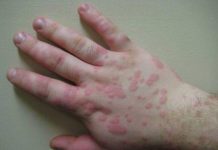After the outbreak in June 2009 of the H1N1 flu virus, news have simmered down to a certain degree; that’s why people might think that the war against this deadly virus is over. But, is it really over yet?
The World Health Organization has this to say about it, “There is no EC (emergency committee) this week. “We are still monitoring and seeing how the virus behaves in the rest of the southern hemisphere winter.” according to WHO spokesman, Gregory Hartl.
As it is the EC of WHO is still tracking down the virus in countries like Australia, Argentina, Chile, New Zealand and South Africa.
They say they are still in the phase 6 of the six-phase scale in denoting a full pandemic.
Perhaps it is too early to say that the pandemic is over considering the number of people killed by the virus that reached 18,337. WHO says it will still be over a year to determine the real status of the situation.
They are still monitoring the northern hemisphere, parts of North America and Europe included where seasonal influenza is expected.
In a separate study made by Yoshihiro Kawaoka of the University of Winsconsin-Madison’s School of Veterinary Medicine and co-authored by the University of Tokyo; he said that the H1N1 virus is capable of mutation that is why it replicates so well in humans.
Initially these viruses were found to have been circulating in pigs for over a decade, until it was discovered to have affected humans last year.
This news will have positive outcomes though in helping predict the possibility of having future flu pandemics. The characteristic and make up of H1N1 virus continues to puzzle researchers making it hard to predict whether the pandemic is over or not.
And since the pandemic is not yet over, it will do well if people will continue to boost their immune system as this is the only way to protect oneself from any type of virus especially H1N1. Extra caution should be taken among children, pregnant women and the elderly.
Last year’s death toll affected people with weak immune system such as the case of people with asthma, diabetes and heart disease. So these people should stay away from pandemic areas.












